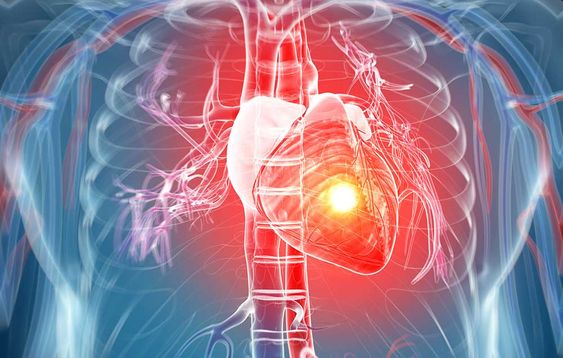What are the 3 early symptoms of a heart attack? Which 3 signs should not be ignored before a heart attack
What are the 3 early symptoms of a heart attack?
Heart attacks are one of the most common causes of death globally. In the United States alone, heart attacks are responsible for one out of every four deaths. Knowing the early symptoms of a heart attack is crucial because prompt medical attention can save a life. In this article, we will discuss the three early symptoms of a heart attack that you should not ignore.
Understanding a Heart Attack
Before we discuss the early symptoms of a heart attack, it is essential to understand what a heart attack is. A heart attack occurs when the blood flow to the heart is blocked, usually due to a buildup of cholesterol, fat, and other substances in the arteries. This blockage causes damage to the heart muscle, which can lead to serious complications, including heart failure or cardiac arrest.
Early Symptoms of a Heart Attack
1. Chest Pain or Discomfort
Chest
pain or discomfort is the most common symptom of a heart attack. The pain or
discomfort may feel like a pressure or tightness in the chest, or it may come
and go. Some people describe the feeling as a squeezing or burning sensation in
the chest. The pain or discomfort may also radiate to other parts of the body,
such as the arms, neck, jaw, or back.
2. Shortness of Breath
Shortness
of breath is another early symptom of a heart attack. The person may feel like
they are having difficulty breathing, or they may feel like they cannot catch
their breath. They may also experience wheezing or coughing.
3. Nausea, Indigestion, or Vomiting
Nausea,
indigestion, or vomiting may also be early symptoms of a heart attack. The
person may feel like they have an upset stomach or like they need to vomit.
They may also experience abdominal pain or discomfort.
Other Symptoms of a Heart Attack
While chest pain or discomfort, shortness of breath, and nausea, indigestion, or vomiting are the most common early symptoms of a heart attack, there are other symptoms that can occur. These symptoms include:
. Cold sweat
. Lightheadedness or dizziness
. Fatigue
. Pain or discomfort in the jaw, neck, or back
. A feeling of fullness or choking in the throat
When to
Seek Medical Attention
If you or someone you know is experiencing any of the early symptoms of a heart attack, it is crucial to seek medical attention immediately. Prompt treatment can save a life and minimize the damage to the heart muscle.
Knowing
the early symptoms of a heart attack is crucial because it can help save a
life. Chest pain or discomfort, shortness of breath, and nausea, indigestion,
or vomiting are the most common early symptoms of a heart attack. If you or
someone you know is experiencing any of these symptoms, seek medical attention
immediately.
FAQs
1. What causes a heart attack?
A heart
attack is caused by a blockage in the blood flow to the heart, usually due to a
buildup of cholesterol, fat, and other substances in the arteries.
2. Who is at risk for a heart attack?
Anyone can have a heart attack, but certain factors, such as high blood pressure, high cholesterol, smoking, obesity, and diabetes, can increase the risk.
3. Can a heart attack be prevented?
Yes, a
heart attack can be prevented by maintaining a healthy lifestyle, including
eating a healthy diet, exercising regularly, maintaining a healthy weight, not
smoking, and managing stress.
4. What should I do if I think I am having a heart attack?
If you
think you are having a heart attack, seek medical attention immediately. call
or your local emergency number










Post a Comment